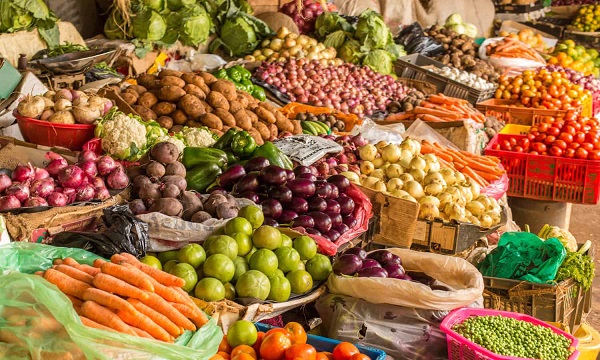
A food security tool kit used by partners in the food security sector, Cadre Harmonise, has projected that over 24.8 million Nigerians in 26 states and the Federal Capital Territory (FCT) may experience a food crisis or worse between June and August 2023.
The Cadre Harmonise analysis covered Abia, Adamawa, Bauchi, Benue, Borno, Cross-River, Edo, Enugu, Gombe, Jigawa, Kaduna, Kano, Katsina, Kebbi, Kogi, Kwara, Lagos, Nasarawa, Niger, Ogun, Plateau, Rivers, Sokoto, Taraba, Yobe, Zamfara and the Federal Capital Territory (FCT).
The report, presented on March 16, 2023, in Abuja during the results presentation workshop on the Cadre Harmonise (CH) Food and Nutrition Insecurity Analysis for Nigeria, was organised by the Federal Ministry of Agriculture and Rural Development (FMARD) and its partners, the Food and Agriculture Organisation (FAO), UNICEF, OXFAM, Save the Children, CRS and others.
The report stated that about 17.7 million people, including 14,000 internally displaced persons (IDPs) in 26 states and the FCT in Nigeria, are already in a food crisis or worse through May 2023.
It listed several factors driving acute food and nutrition insecurity conditions in Nigeria, including conflicts and insecurity, fuel scarcity, naira redesign and the cashless policy, high inflation rates, and other issues. The report noted that the monetary policy of the Central Bank of Nigeria (CBN) geared towards the redesign of the currency notes and withdrawal of old notes from circulation created a bottleneck for households’ ability to access cash as well as food commodities.
According to the report, insecurity, especially insurgency in the northeast states – particularly in Borno, Adamawa, and Yobe States – persists. Armed banditry and kidnapping for ransom also occur in some northwest states – Katsina, Sokoto, Kaduna, as well as north-central states of Benue and Niger – which have also lingered.
The prolonged scarcity of petroleum motor spirit (PMS), commonly called petrol, and the associated hike in pump prices across the states led to an astronomical rise in transport fares and the cost of food products in Nigerian markets. Consistent rising prices of food commodities and agricultural inputs across Nigerian markets are among the drivers of food insecurity. The general consumer price index showed an increase from 15.7 per cent in February 2022 to 21.9 per cent in February 2023 (that is a 39.49 per cent point increase) year-on-year.
The report also showed that food consumption levels have remained inadequate and below the desired threshold across most of the states. In some LGAs in Adamawa, Borno and Yobe, food consumption was so critical that most LGAs fell under the crisis phase.
It recommended that the government and humanitarian community should sustain the implementation of life-saving interventions of food assistance and unconditional cash transfers (social welfare packages) to vulnerable populations in the affected areas. It also recommends that the government, civil society organisations and private actors should sustain efforts in facilitating humanitarian access to the inaccessible/hard-to-reach areas to provide basic assistance to those in critical need.
The report further recommended the promotion of various resilience-building interventions for households through MSMEs, prioritising vulnerable populations to enable them to get a fresh start-up for their livelihood, as well as dry-season agricultural production inputs. Additionally, the report suggests that the CH analysis results should be applied consistently as a tool for response planning, policy formulation, and resource allocation to address critical needs.
The country representative of the United Nations Food and Agriculture Organisation (FAO) for Nigeria and ECOWAS, Fred Kafeero said the FAO has continued to support the government in leading the implementation of CH processes nationally, both in terms of funding as well as technical support, despite resource limitations and competing demands.
In his remarks, the FMARD permanent secretary, Dr. Ernest Umakhihe – who was represented by the ministry’s director, planning policy and coordination, Dr. Ibrahim Tanimu – said the March, 2023 CH results were apt and came at a phase of economic stress in which post-COVID-19 pandemic challenges, the negative economic impact of the Russian -Ukraine war and insecurity which has continued to threaten Nigeria’s food and nutrition security.
“As we gather once again to discuss the findings from this March, 2023 cycle, which is the 16th in the series for Nigeria, the FMARD assures all partners of governments’ commitment to upholding the outcome and recommendations arising from it with a view to enhancing the food and nutrition security situation in the concerned states through objective intervention programme,” he said.
Umakhihe expressed appreciation to both the local and international partners whose financial and technical contributions have remained instrumental to sustaining the CH analysis in Nigeria.


